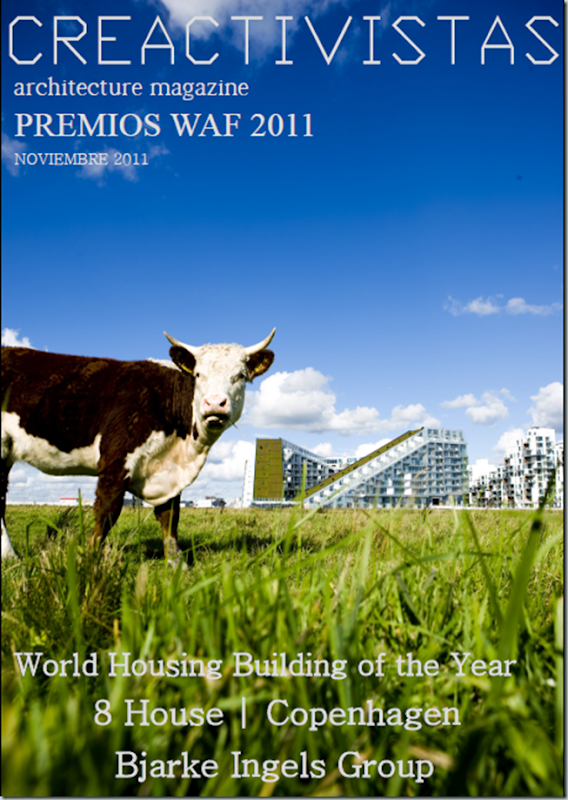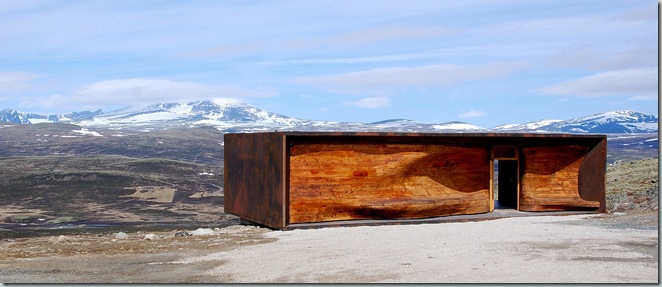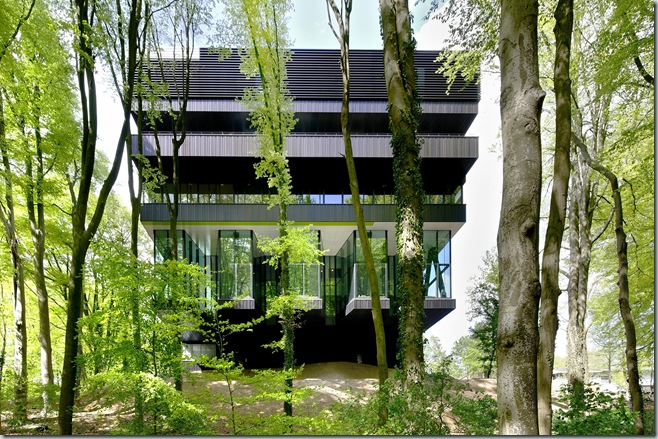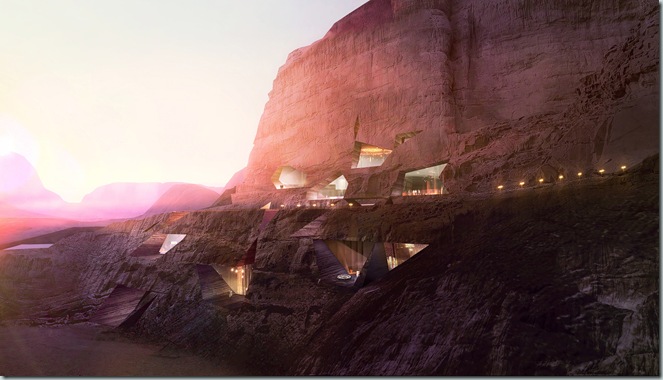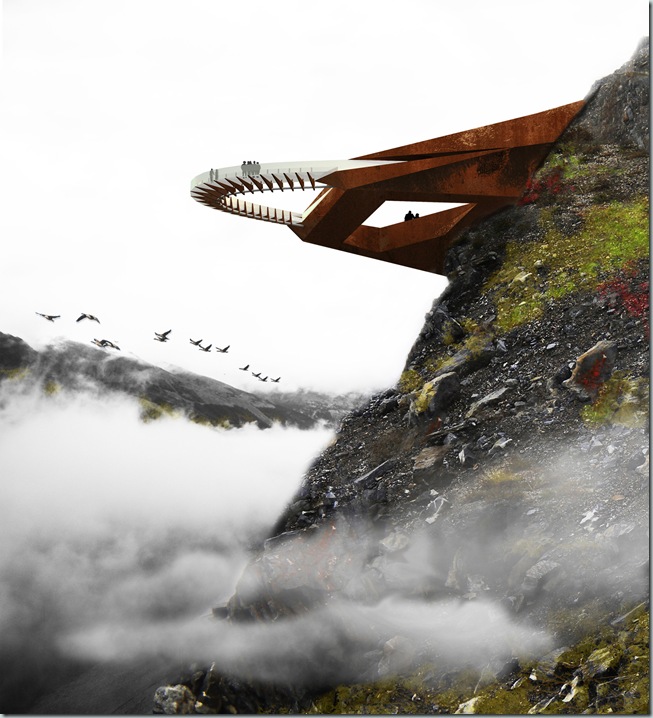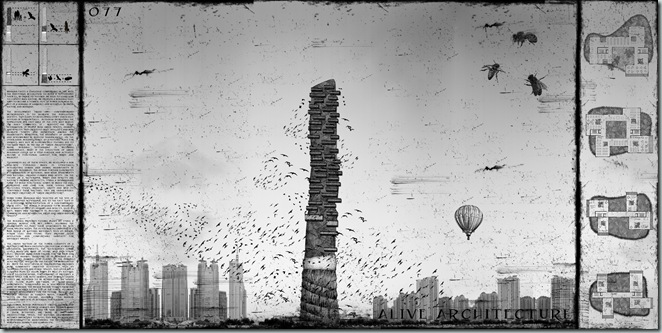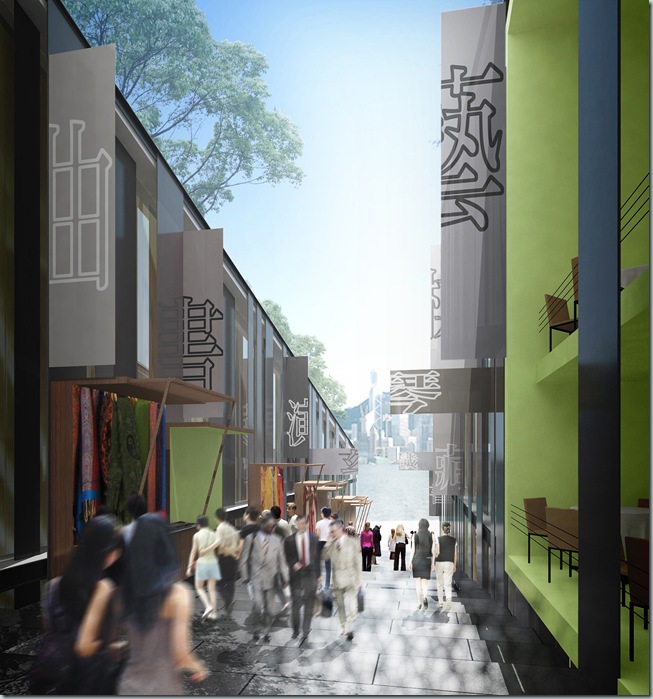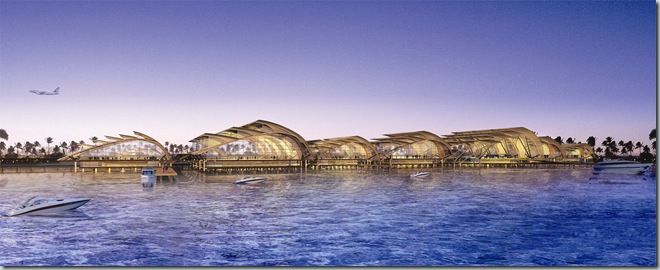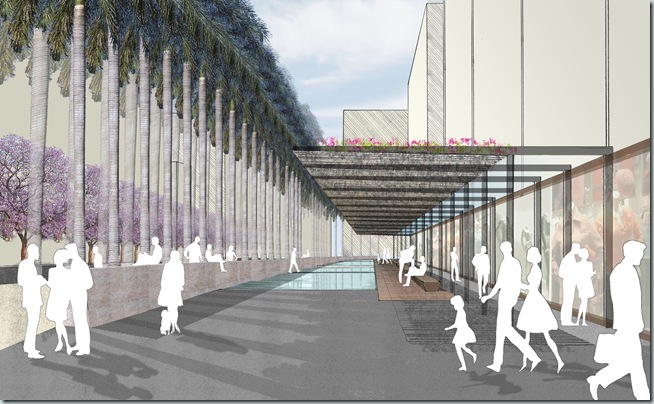WAF Awards Day Two Category Winners Announced at World Architecture Festival Awards 2011
Four completed buildings and nine future projects, celebrating designs still on the drawing board, from around the world have today been announced as winners on the second day of the World Architectural Festival (WAF) Awards 2011.
The presentation of the WAF Awards is taking place during the largest global celebration of architecture – the World Architecture Festival, which is being held in Barcelona (CCIB) this week.
Speaking at the WAF Awards 2011 Paul Finch, WAF Programme Director, said: “The World Architecture Festival is the world’s largest, live, truly inclusive and interactive global architectural awards programme. Attracting entries from internationally renowned practices to small local architects, the stellar quality of this year’s designs demonstrates their commitment to designing the world’s most exciting buildings. This year we’ve attracted more entries than ever before, with more than 700 submissions from 66 different countries. Our congratulations go to the winners for truly accomplished projects.”
All the WAF Award category winners will go head to head on Friday 4th November as they present their projects and compete for the highest accolades in global architecture, which will be decided by a ‘super-jury’¹ of some of the world’s most influential architectural and urban designers, led by the distinguished Michael Sorkin. They will cast their votes to decide the World Building of the Year 2011, Structural Project of the Year 2011 and Future Project of the Year 2011.
The WAF Awards day two winners are as follows:
World Shopping Building of the Year
Decameron, Sao Paulo, Brazil, Studio MK27, Brazil
The showroom of the Decameron furniture store is located on a rented site in the furniture commercial alley in São Paulo. To make the quick and economic construction viable, the architect, worked with the premise of a light occupation combined with industrial elements, which could easily be assembled.
World Display Building of the Year
Norwegian Wild Reindeer Centre Pavilion,Hjerkinn, Norway, Snøhetta, Norway
The Norwegian Wild Reindeer Centre Pavilion is located at Hjerkinn on the outskirts of Dovrefjell National Park, which rises 1200 metres above sea level and is home to Europe’s last wild reindeer herds and is the natural habitat for many rare plants and animals. The 90m² building, which features a rigid outer shell and an organic inner core is open to the public and serves as an observation pavilion for the Wild Reindeer Foundation educational programmes.
World Health Building of the Year
Rehabilitation Centre Groot Klimmendaal,Arnhem, Netherlands, Architectenbureau Koen van Velsen, Netherlands
In the undulating forest landscape around Arnhem in the eastern part of the Netherlands, revalidation centre ‘Groot Klimmendaal’ can be found standing as a quiet deer in between trees. From a small footprint, the building gradually fans out towards the top and cantilevers out over the surrounding terrain. The care concept is based on the idea that a positive and stimulating environment increases the well-being of patients and has a beneficial effect on their revalidation process. The design ambition was not to create a centre with the appearance of a health building but a building as a part of its surroundings and the community.
World Housing Building of the Year
8 House,Copenhagen, Denmark, Bjarke Ingels Group, Denmark
With spectacular views towards the Copenhagen Canal and over Kalvebod Fælled’s protected open spaces, 8 House will not only be offering residences to people in all of life’s stages as well as office spaces to the city’s business and trade – it will also serve as a house that allows people to cycle all the way from the ground floor to the top, moving alongside townhouses with gardens winding through an urban perimeter block.
Future Project of the Year – Commercial
Wadi Rum Resort, Jordan, Oppenheim Architecture + Design, USA
A unique luxury accommodation where desert sand meets desert stone, engaging with the landscape with nominal impact and primal elegance. The boundaries between man-made and nature, interior and exterior are deliberately blurred to establish maximum impact.
Future Project of the Year – Competition Entries
Glacier Discovery Walk, Alberta, Canada, Sturgess Architecture, Canada.
The Glacier Discovery Walk is envisioned as an extension of the fractal landscape that defines the Columbia Icefields in Canada’s Jasper National Park. Located along the edge of this dramatic escarpment, the project weaves a continuous thread of experience through united geometric and material forms. This sinuous experience defines the Discovery Walk not only as a singular destination, but as a catalyst and gateway that empowers guests to immerse themselves in the untouched natural environment.
Future Project of the Year – Experimental
The Tower of Nests, Shanghai, China, Kjellgren Kaminsky Architecture AB
Located in down town Shanghai, it is designed to be co-inhabited by humans and animals. Its outer skin is composed of natural materials to allow birds and bees to inhabit, yet providing a community space.
Future Project of the Year – Education
Women’s Opportunity Center,Kayonza, Rwanda, Sharon Davis Design, USA
On a two-hectare site in Rwanda, the most densely populated country in Africa, the Women’s Opportunity Center is a change-making campus that empowers one small community and, in turn, reframes the way we as architects engage the world.
Future Project of the Year – Cultural
Zhang Da Qian Museum,Neijang, China, Miralles Tagliabue EMBT, Spain
On April 2010, Excellence group invited EMBT to design Zhang Da Qian’s museum in Neijang city, a purpose built museum to exhibit the work of the legendary Chinese painter in his home town. The design philosophy behind the museum would be to integrate the cultural essence of east and west and to express the past and the future and relate to the painter’s friendship with Picasso.
Future Project of the Year – Residential
Wafra Living, Kuwait, AGi Architects, Kuwait
The design for the “Wafra Living” complex, consists of a high rise building set back from the street and an L-shaped building defining the street edge, conceived to maximize privacy within the community, whilst providing ample natural light and usable indoor and outdoor common spaces. Cuts have been made in the front building in order to provide better views for the lower floor apartments in the back tower.
Future Project of the Year – Masterplanning
West Kowloon Cultural District Conceptual Plan,Hong Kong, Rocco Design Architects Ltd, Hong Kong
The proposed Conceptual Plan for the West Kowloon Cultural District (WKCD) aspires to evoke a social energy conducive to the spirit of exploration and discovery, hence the essence for long-term sustainable cultural development for Hong Kong. The programmatic disposition of the master plan is structured on a 3-layer organization: green terrain (south), city link (north) and a cultural zone (centre) for the arts. Overlaid onto its framework is an urban street-grid. The Conceptual Plane aim is to offer a low carbon sustainable community.
Future Project of the Year – Infrastructure
Hanimaadaoo International Airport, Maldives, Integrated Design Associates Limited, Hong Kong
The new airport, designated as the country’s second international gateway, is located on an island with very limited land mass for an international airport of this size. With airfield infrastructure consuming nearly all the available land our concept of a “floating terminal” has been selected by the Government for its innovative, exciting and eco-friendly approach. The proposed terminal is built entirely on stilts over water without reclamation to preserve the existing environment and the natural coastline. With blue sea, white sandy beach as backdrop the new airport aims to provide passengers with a unique and memorable travel experience.
Future Project of the Year – Health
Binh Chanh Pediatric Hospital,Ho Chi Minh City, Vietnam, VK, 2050 A+P, Nhat My, Belgium
The Centre presents a welcoming and open environment, offering a natural habitat for care whilst still allowing plenty of opportunity for other activities. The double-height ground floor at entrance level facilitates the rehabilitation process with a sports and fitness facility including a swimming pool, and also a restaurant and theatre. As well as patients, family members and members of the local community (schools, theatre groups etc) are invited to use these facilities on a regular basis. The meandering facade of the building allows the forest inside the building.
Future Project of the Year – Landscape
Shoreline Walk, Beirut, Lebanon, Gustafson Porter, UK
The ‘Shoreline Walk’ is a sequence of connected spaces which form part of the reconstruction of the Beirut city centre. The project demonstrates Beirut’s character and resolve. It guides and reveals Beirut’s history and forms a connective spine to the city. A continuous white limestone line marks the ground and a wide pedestrian promenade. It features four areas to pause and reflect on pre-war city and forgotten memories.
